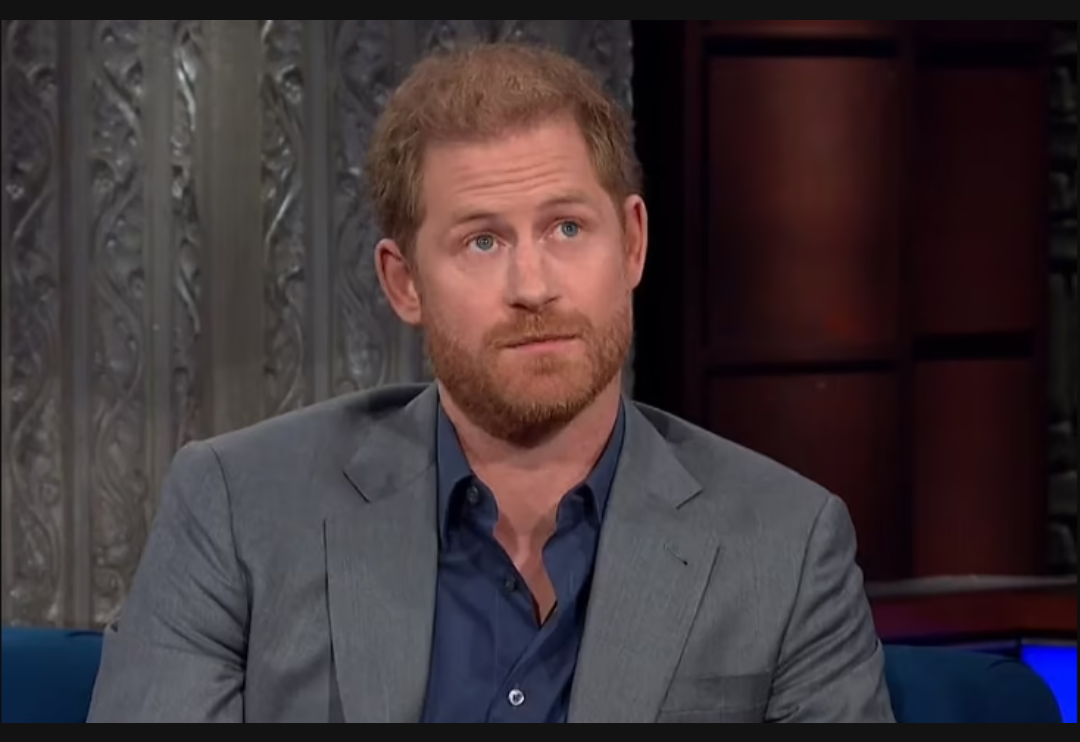Foreign
Prince Harry could be denied entry to the US by any border guard who has read his admission of drug taking in Spare, legal expert claims
Prince Harry could be denied re-entry to the US by any border official over his drug-taking admissions in his autobiography, legal experts have claimed.

The border officials could grill him on the admissions if he failed to declare it on his visa application form.
It means the Duke of Sussex could be stopped from returning to the US next month after his trip to London as he sues Mirror Group Newspapers over allegations of phone hacking.
The revelations come after it emerged the US government will appear in a federal court next Tuesday to answer questions regarding Harry’s visa application after he admitted taking cocaine, cannabis, and magic mushrooms.
Washington DC-based think tank The Heritage Foundation is suing Joe Biden’s administration to force officials into releasing the Duke’s immigration files.
Raymond G. Lahoud, an immigration lawyer at Norris McLaughlin, told DailyMail.com that Harry could be barred from re-entering the US if he came up against the wrong border guard.
A CBP officer would not be able to quiz Harry on his previous drug use if he had declared it at the time of his visa application, since a decision would already have been made to issue a waiver.
It is not known whether Harry declared this.
‘Every time he comes into the US he is supposed to go through Customs and Border Protection (CBP),’ Mr Lahoud said.
Any person would be asked those questions and would be turned away if there is a clear record of drug use [that has not previously been declared].
‘If I am a customs agent, I have the right to answer whatever questions I want. If he has violated any law with regard to drug use, that’s grounds to be turned away, regardless of whether there was a conviction.’
Mr. Lahoud added that he thought it was unlikely to happen even if Harry had not declared his drug-taking because he was not a ‘normal citizen’ – and agreed with The Heritage Foundation’s claim that he was ‘getting special treatment because is Prince Harry’.
The think tank is arguing that an explanation of how Harry got into the US – despite subsequent admissions of drug use – is in the public interest.
It also wants to know how Harry answered questions about his drug use on his application.
The case is set to be held in front of a federal judge on June 6 at 2.30pm at the US District Court for the District of Columbia.
It comes after the think tank failed to make the application public using freedom of information laws in March.
Mr. Lahoud said the case ‘could go either way’, but added that he thought the privacy of immigration records would trump the public interest argument – and the files would not be released.
He did say, however, that there is a risk that the publicity generated by the lawsuit would ‘put a big mark’ on Harry’s immigration file that could make it more difficult for him to renew his visa.
Mr. Lahoud said if the Duke is found not to have declared his drug use on his visa application, it ‘should be rescinded’.
In Spare, Harry revealed that he first took cocaine on a shooting weekend at age 17. He did a ‘few more lines’ on other occasions.
He also admitted to hallucinating during a celebrity-filled event in California and smoking cannabis after his first date with Meghan.
And the duke spoke about his ‘positive’ experience of psychedelic drug ayahuasca, saying it ‘brought me a sense of relaxation, release, comfort, a lightness that I managed to hold on to for a period of time’.
Harry made the comments in an interview with therapist Dr. Gabor Maté, an outspoken supporter of decriminalizing drugs who has allegedly used Amazonian plant ayahuasca to treat patients suffering from mental illness.
Harry told him: ‘(Cocaine) didn’t do anything for me, it was more a social thing and gave me a sense of belonging for sure, I think it probably also made me feel different to the way I was feeling, which was kind of the point.
‘Marijuana is different, that actually really did help me.’
It is not known what sort of visa Harry has, but it could be a temporary non-immigrant one called an O-1 for extraordinary ability, which would expire after five years.
Under US law, non-citizens who admit to illegal drug use or have been convicted of drug offenses can be barred from the country. If they admit to this, a waiver would likely be required to gain entry, but this can be a difficult and lengthy process.
This could involve undergoing a medical examination, including blood and urine tests, a chest X-ray, and an interview to confirm whether the applicant was no longer taking drugs.
Follow us on social media:-

 Celebrity Gossip & Gist1 day ago
Celebrity Gossip & Gist1 day ago“The money wey dem pay me don expire” – Moment Burna Boy stops his performance at the Oando PLC end of the year party (Video)
-

 Economy1 day ago
Economy1 day agoGoods worth millions of naira destroyed as fire guts spare parts market in Ibadan
-

 Celebrity Gossip & Gist10 hours ago
Celebrity Gossip & Gist10 hours agoMoment stage collapses on Odumodublvck during concert performance (Video)
-

 Economy10 hours ago
Economy10 hours agoPresident Tinubu cancels Lagos engagements in honor of food stampede victims




